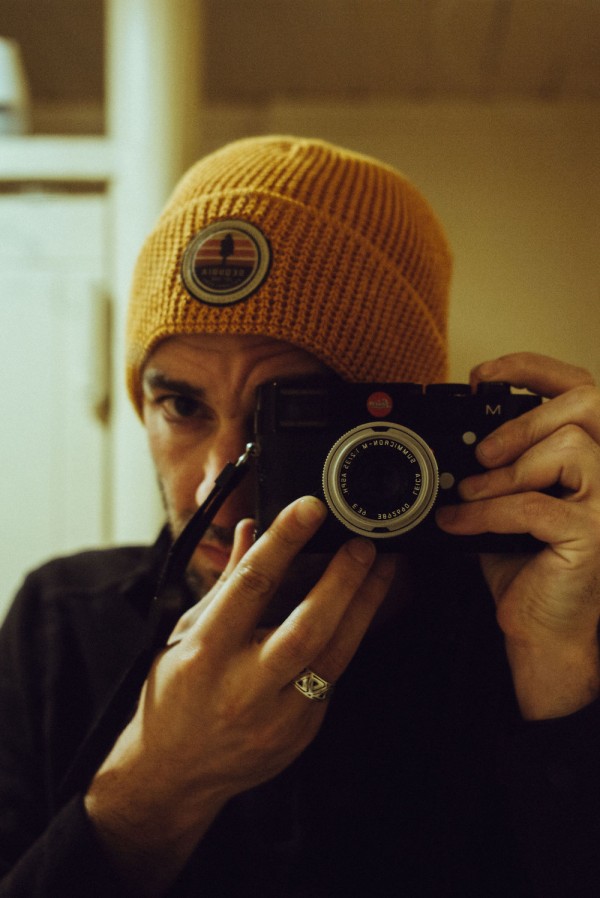Trying to keep a crumbling dream alive
Trying to keep a crumbling dream alive
Théo Giacometti
December 11, 2023

A hunter since he was a kid, Teddy, 22 years old, is desperate about the disappearance of waterfowl
LFI: Can you explain where the title of the project, For Whom the Sirens Will Sing, comes from?
Théo Giacometti: This title, Pour qui chanteront les sirènes (For Whom the Sirens Will Sing), is taken from the text I wrote to accompany the images. In the form of a long poetic text, I recount the wanderings of a fictional character in this region. He projects himself into the future with a certain nostalgia.
How did your project about the Camargue come about?
It was something I'd wanted to do for a long time. I had read in an Intergovernmental Panel on Climate Change (IPCC) report that the Camargue was threatened by rising sea levels, soil erosion and global warming. Some scenarios talked about evacuating certain towns in a few decades. I thought to myself that this could produce Europe's first climate refugees. In the end, I wanted to detach myself from this overly journalistic aspect and tell the story of an area and its inhabitants, at that very special moment when we are considering our own disappearance.
What challenges did you face while photographing?
The environment is very special, and not very welcoming! It's an area made up of marshes and plains of low, flat, and immense vegetation. I found all this very hard to photograph: it's flat, the summer light is blazing, and the salt on the ground tends to create a haze, which makes everything you see blurred. I've tried to go beyond clichés about the Camargue, or to tell a different story, to reappropriate this area and tell a broader story.
What was it you wanted to show about the Camargue region?
It's a photographic project about the rising waters in the Camargue and the future of its inhabitants, who are faced with the disappearance of their lands. Attacked from all sides – by the sea that is eating away at the beaches, by progress that wants to raze the cottages, and by tourists who are swamping the villages –, the people of the Camargue are trying to keep a crumbling dream alive.
What is their dream?
The people of the Camargue have tried to maintain a way of life that is powerfully linked to their environment, and resisting the powerful standardisation of our societies. Wooden cabins in the marshes, fishing, hunting, life in the middle of the ponds. They would have liked all this to last forever; but there are no more birds, no more fish, and the bulldozers are already razing the cottages to the ground before the sea gets to them.
So you asked yourself what will be left of all this?
I wanted to keep a record of this territory at this precise moment in time, of its inhabitants and lifestyles; and, at the same time, I wanted to raise questions about the future. I find it interesting to confront these people with the abysmal issue of the disappearance of their own space. It's a place that's full of clichés, folklore and tradition, as well as many different communities. As I went along, I realised that what was at stake here was also a more universal question about our future on this planet, about a land that would regenerate without us, and about the survival of certain 'non-standard' ways of life.
What do you think will happen to the Camargue region in the future, 20 to 30 years from now?
It’s obviously very difficult to say. Nobody can predict climate change, but every year the salt sinks further into the earth, the summer drought attacks the soil and the torrential autumn rains do more and more damage. The rapid and powerful development of tourism is also complicating matters. As a delta, the Camargue is inherently a moving territory, in constant evolution.
Do you think photography can make people more aware about certain topics?
Yes, I still believe in the power of photography to change things, even just a little. To bear witness, to inform, to move, and to one day remind us of where we come from. In any case, that's what I work towards every day of the week!
For Whom the Sirens Will Sing+-
There's a kid playing with his ass in the dirt in front of this white and blue shack. I murmur: a house by the sea.
A working man's dream.
It's all going to disappear, I tell myself.
Tomorrow there will be nothing left.
Nothing.
A few sick fish will take shelter under the cooker in the house under the water. The huge chimneys, of course, will have found shelter further away,
taking with them
What's still alive here.
A few tired workers,
a few scrap metal workers, a canning factory, a tired marsh and dry scrub where a few insects are still struggling.
But of all that?
Just a few memories in the wind and the mournful songs of the birds.
To the south, nothing.
The road? Buried.
But for whom the sirens will sing asks the old man leaning against his twisted car door.
Soon there will be nothing left but souvenir shops for tourists. Dams have been built all along the river,
emptied the marshes, fenced off all the fields,
gagged the rivers and dammed the ponds.
Believe me, boy, from Les Saintes
there will soon be nothing left but an island.
I really hope the sea washes everything away and all that's left is the church, standing there in the middle of the sea.
Like an idiot in the sun.
It would be beautiful.
All the tourists underwater, with their fancy cars and overpriced restaurants. Gone.
We'd finally have some peace, you see.
The horses will have time to go in peace, don't worry about them.
Théo Giacometti+-
Born in 1989 in the southern French Alps, Giacometti devoted himself to journalism and photography after a career start as a chef. He published his first novel, Puisque chante la nuit (Because the night sings), in 2013. In 2018 he moved to Marseille and started working for the national and international press: Le Monde, Libération, The Guardian, etc. He is a member of Studio Hans Lucas, a platform for freelance photographers and photo agency. In 2022 he was awarded the Mondes Nouveaux grant by the French Ministry of Culture. More

A hunter since he was a kid, Teddy, 22 years old, is desperate about the disappearance of waterfowl
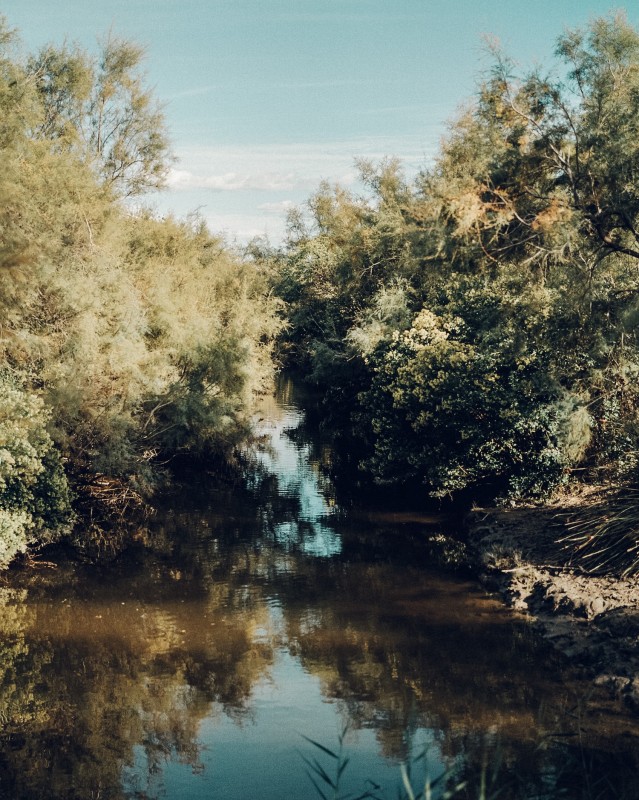
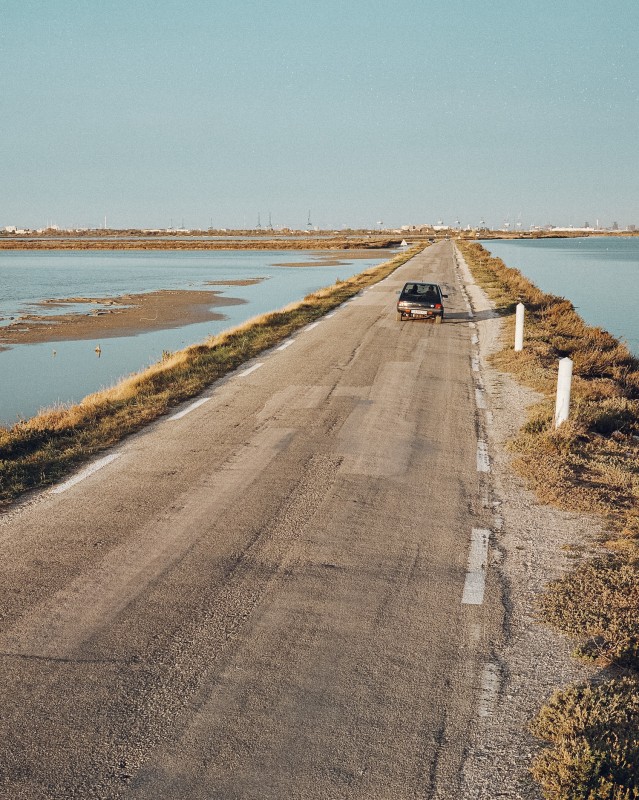
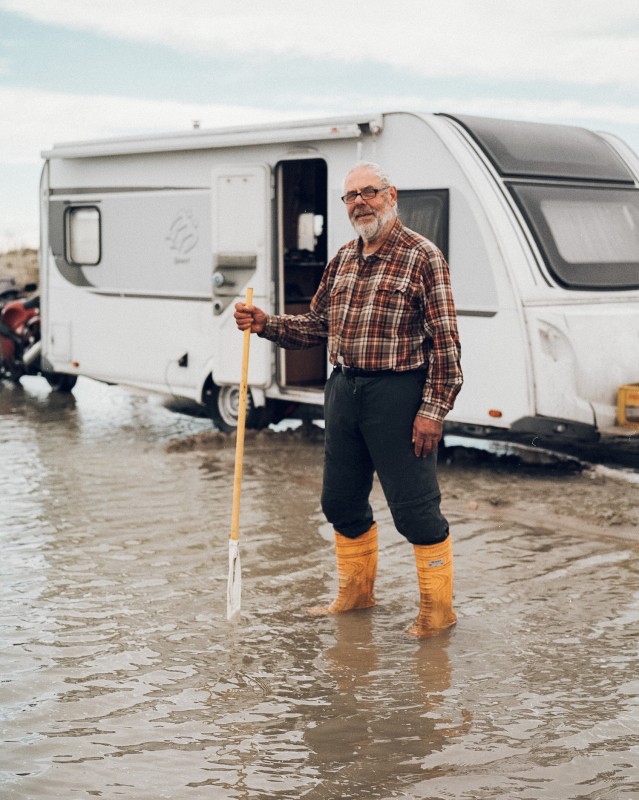
Hans, a German holidaymaker who has been a regular at Napoleon beach for twenty years, has been blocked by an advancing sea
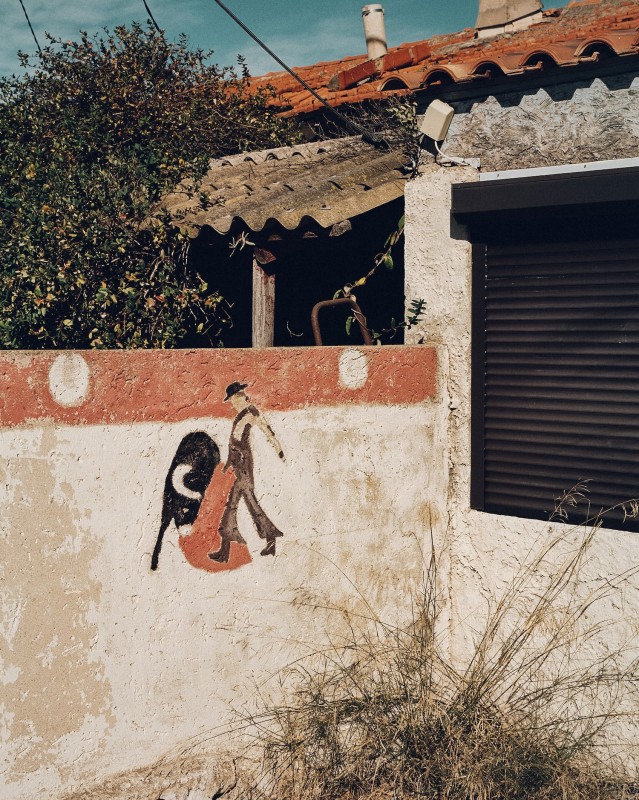
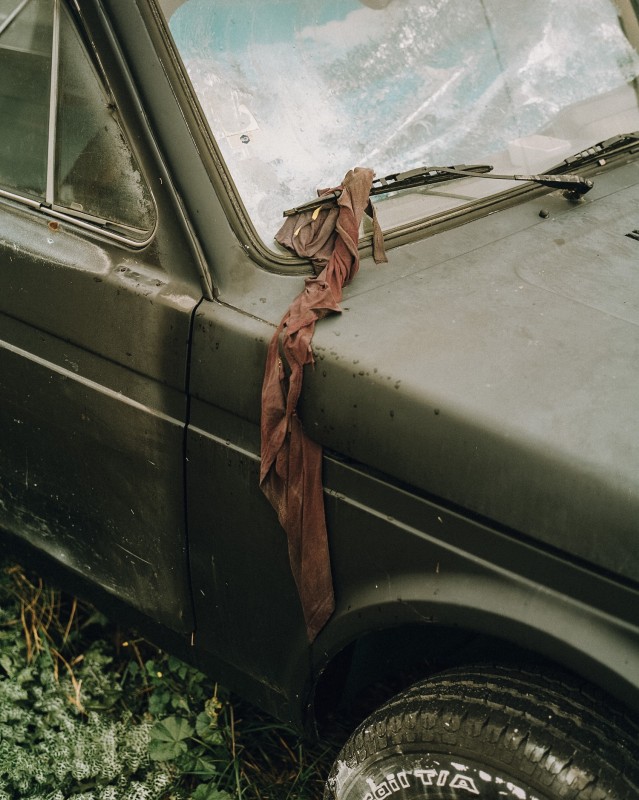
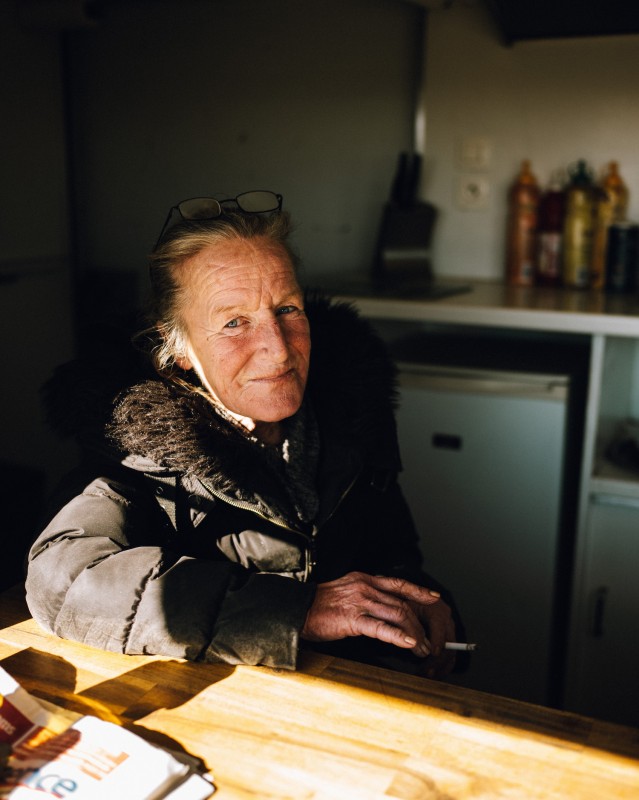
Nathalie and her husband have been running a snack bar for thirty years, and have seen the major industrialisation of this wild area
